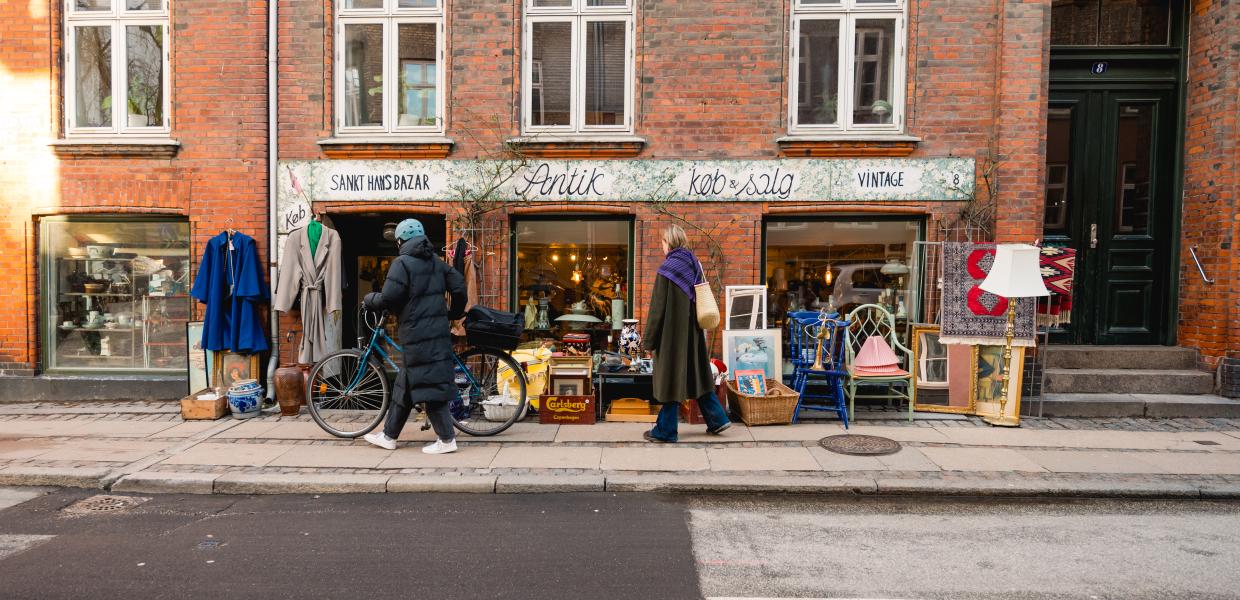
Help yourself-shops are on the rise - trust is the foundation of Copenhagen
The story of Danish trust permeates through Copenhagen and is the basis for how our society is built. From strollers with sleeping babies outside cafés to self-service shops to our public transport system that operates without entry gates. Here is how to experience this high trust.
Walking into the little bakery, Sinne Gas Bakery, you are met with the scent of freshly baked pastries. While the open bakery lets you in on their work in the back, the baked goods are displayed at the counter and customers are free to serve themselves just making sure to leave their payment behind.
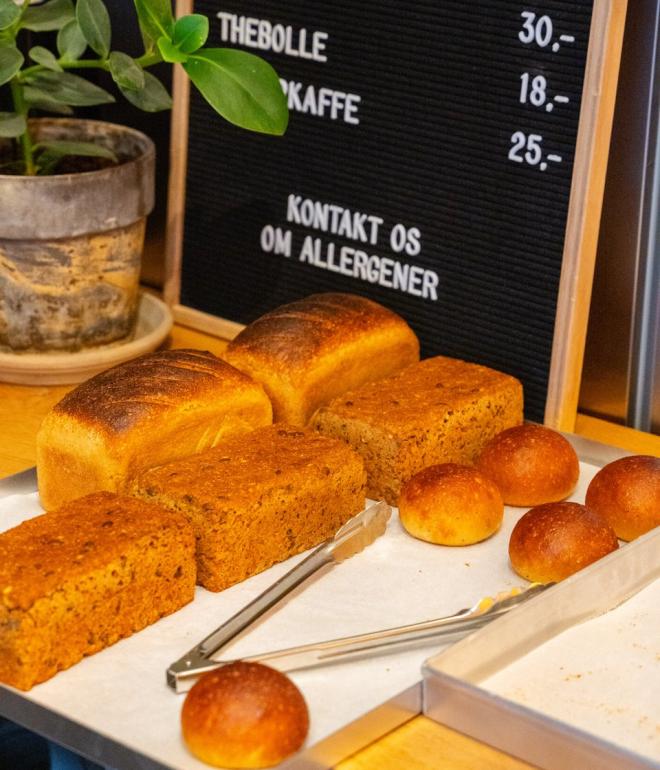
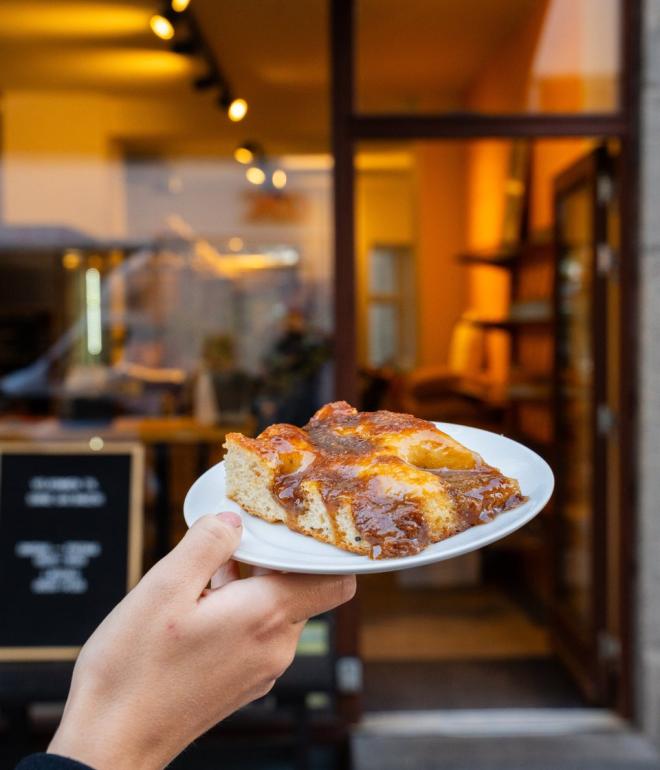
In Denmark, trust is considered the basis for how our society works, and it is the foundation of our social interactions, how we do business, and how our political system functions. This mutual trust in our fellow citizens can be met in different ways and places:
-
Lines of strollers with sleeping babies are left outside on the streets while parents sit in cafés, ensuring a better and longer sleep for babies (PubMed)(Cradlewise).
-
Libraries are open for 24 hours and can be entered with a social security card in unstaffed periods.
-
Unstaffed shops with self-service check-outs.
-
Self-ticketing and no gates to enter public transportation
-
Unstaffed self-service roadside stalls with cultivated goods from local farms, where customers take what they want and leave money in a jar.
-
Most clothing shops have racks with clothes left on the street for you to be inspired by. Local people in Copenhagen also leave their second-hand clothes and items out on the street, with price tags and a number to transfer money to.
Note that an increasing number of self-service principles in Denmark, building on trust, require the Danish mobile app Mobile Pay. This app lets people with a Danish bank account easily transfer money through their phones. For this reason, it is important for tourists to remember cash when visiting many of the places, as the app is not available for people holding a foreign bank account.
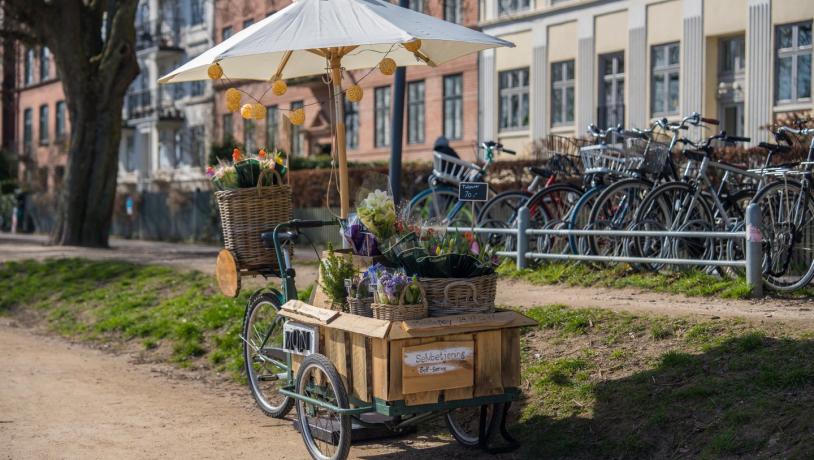
Photo:Mark Tanggaard
Why is Copenhagen a trustful place?
In 2023, Denmark was ranked as the second most trustworthy country in the world (U.S.News), and the country is often referred to as a high-trust society by anthropologists because we automatically trust people we have never met before (Denmark.dk). Professor of Political Science at Aarhus University Dr Gert Svendsen calls it social trust and believes it is the cornerstone of our welfare state as we trust our political system to make decisions based on the citizen’s best interest. Don’t be surprised if lost wallets are returned with money inside or if we don’t need formal, written contracts as we rely on openness, honesty and the mantra – a word is a word (Denmark.dk). Trust can be considered an effective resource that avoids many bureaucratic decisions, has fewer social conflicts, and decreases corruption (Denmark.dk).
Some anthropologists also connect our ability to trust each other in the Nordics with geography and history. Throughout recent history, the Nordic region has been a very peaceful part of Europe, with fewer wars and showdowns, allowing stability for a political and social system to develop in which people trust and support each other (Denmark.dk). As of the Global Peace Index from 2023, Denmark also ranks as the second safest country in the world.
Help yourself in these venues
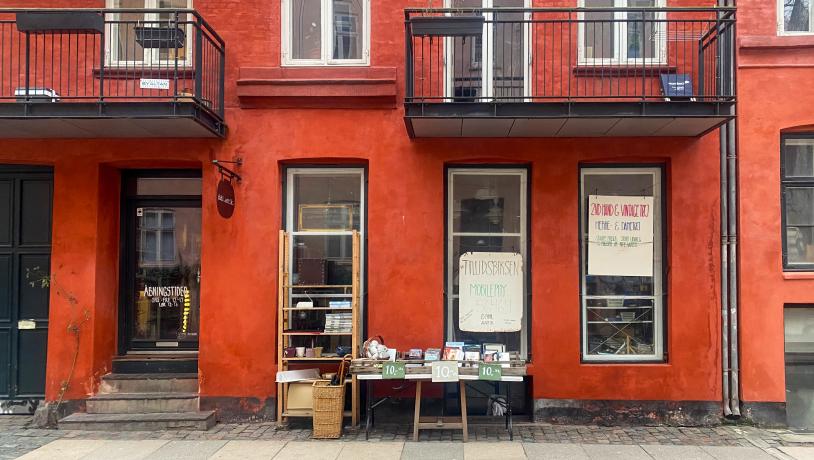
Dahl Antik - The trust shop
Sankt Hans Gade 12, 2200 Copenhagen
Dahl Antik or Tillidsbiksen (the trust shop in Danish), as the shop usually goes by, is an antique store or treasure hunter, as they call themselves, that sells vintage products. The shop has a table with various goods permanently located out on the sidewalk in Sankt Hans Gade – also by night. The goods are equipped with price tags, and the table is accompanied by a sign with a phone number, which you can use to transfer the money. The table is located underneath a balcony, so the goods aren’t affected by rainy weather.
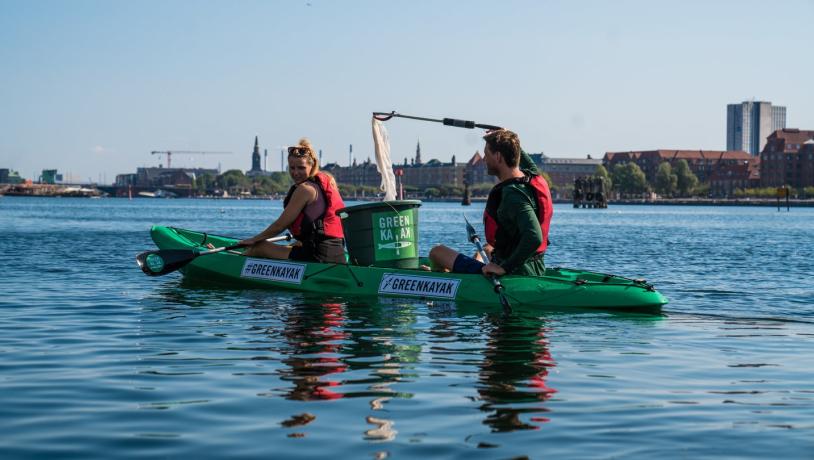
Green Kayak
Different locations
GreenKayak is a Copenhagen-based environmental NGO that engages people in the fight against ocean pollution. Everyone is invited to paddle with their kayaks for free under two simple conditions: spend your time in a GreenKayak collecting trash and share the experience on social media. Since 2017, when the concept started with just one kayak in Copenhagen, the concept has expanded and is trying to reach as many locations as possible across the globe for cleaner oceans. GreenKayak has reached a remarkable milestone of collecting 100 tons of trash in total since the concept was launched in Copenhagen in 2017.
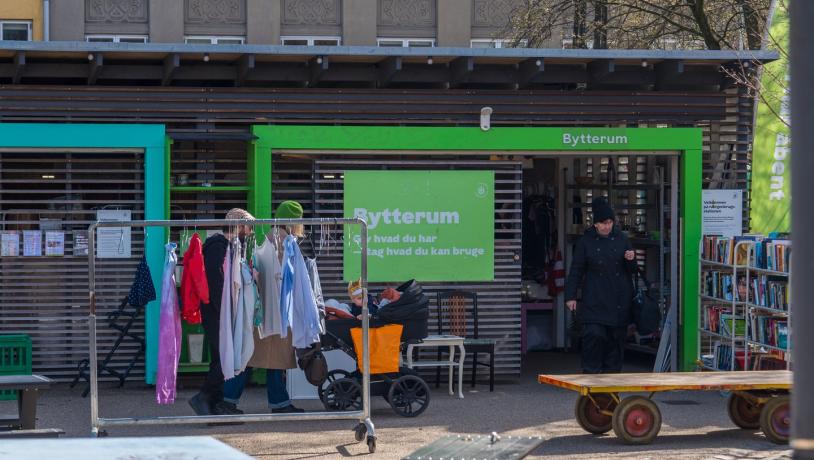
Local Recycling Stations
Several locations - for example, Møllegade 25, 2200 or Helsinkigade 26
The City of Copenhagen has established 11 local recycling stations around the city. Besides sorting your garbage at the stations, you can also visit small trading corners or rooms. The trading rooms run by the slogan: give what you got – take what you need. Here, anyone can hand in things like clothes, books, kitchen appliances, etc., that they no longer use or need for other people to take. Everything is free, and you don’t need to hand in anything to take something yourself. The City of Copenhagen has also made a considerable effort to make the places welcoming and aesthetically pleasing.
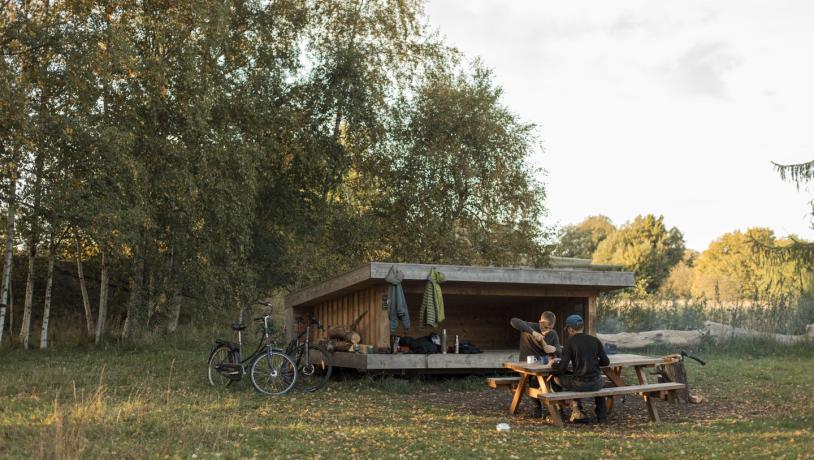
Shelters in Copenhagen's nature
Sleeping in outdoor shelters has become a popular activity in Denmark. Shelters are normally associated with a brief stay in a covered place made to protect people from bad weather, but in Denmark, temporary shelters have been installed in the Danish nature, which people use for overnight outdoor sleeping in the Danish nature. The shelters are free to use but often need to be booked in advance through The Danish Nature Agency: https://book.naturstyrelsen.dk/.You can, for example, explore the nature of Amager, Værløse, Furesø, Skodsborg or Elsinore through a shelter stay over.
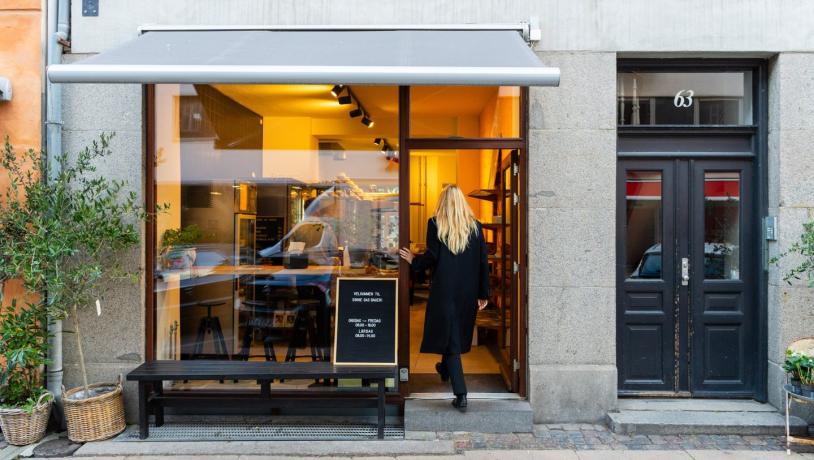
Sinne Gas Bakery
Ryesgade 63, 2100 Copenhagen
Sinne Gas is a bakery that operates according to a self-service principle, where customers take what they need and transfer the money with their mobile or put cash in a jar. The bakery is run by one baker, Martin Vogelius. The name “Sinne Gas” derives from the Southern Jutland dialect and means “take it easy”. The bakery is also closed on Sundays, which usually is the busiest day for other bakeries. Sinne Gas Bakery bakes classics such as sourdough bread and buns, sweets like the Danish brunsviger cake and cardamom swirls, which is their take on cardamom bun.
Sydhavn Recycling station
In the district of Sydhavn, you can find a large recycling centre. It is a much larger version of the trading rooms that you find at the local recycling station, but they run by the same principle, where you give what you have and take what you need. At the recycling centre, you can also pick up furniture and construction materials. You can also borrow a free cargo bike to transport the goods to your home.
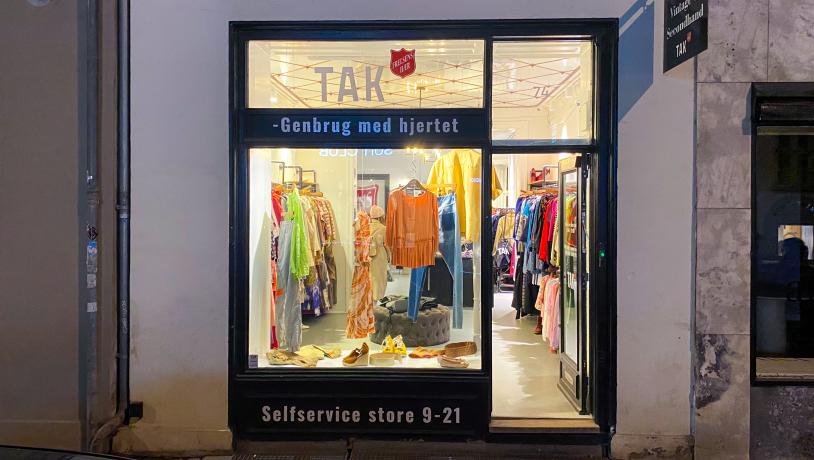
TAK - secondhand shop by the Salvation Army
Store Kongensgade 74, 1264 Copenhagen
And at Gl. Kongevej 85, 1850 Frederiksberg
TAK (“thank you” in Danish) are unstaffed charity shops that sell exclusive designer Danish brands such as Ganni and Stine Goya. The shop is a self-service shop, where customers themselves pay for the clothes at the self-checkout registers. Additionally, the store doesn’t rely on staff, extending the opening hours from 9-21, whereas traditional shops usually open around 10-11 and close around 18.
Due to the store often being unstaffed, the store in Gl. Kongevej can be opened for people in possession of a Danish social security number by using their ID, but it is also possible to open the store by entering a code, which travellers can get through their website: https://www.tak.dk/.
Facts about Danish trust
- 78% of Danes reported that they trust people they have no previous acquaintance with (Dr. Gert Svendsen)
- Up to a quarter of Denmark’s wealth can be attributed to our high level of trust (Dr. Gert Svendsen)
- In 2023, Denmark ranked as the second most trustworthy country in the world (U.S.News)
- In 2023, Denmark ranked as the second safest country in the world (Global Peace Index)
- In 2023, Denmark ranked as the least corrupt country in the world (Corruption Perceptions Index)
- The high level of trust in Denmark is often associated with our welfare state.
- In 1997, a Danish woman was arrested for leaving her baby outside a New York restaurant (The Guardian)
Press photos: The story of trust in Copenhagen
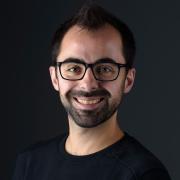
Senior Manager – Press & PR
